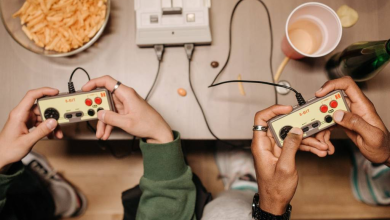Fun Card Game You Can Play with Friends: Spades
If you’re ever bored with friends and don’t have any board games lying around, playing spades with a deck of cards is an excellent idea.
Learning to play is a lot easier than you’d think. We’ve detailed how to play and also snuck in some tips and tricks so you can earn those sweet, sweet bragging rights.
How to Play Spades
Spades is typically played between two teams of two, with teammates sitting across from each other. The objective of the game is simple: to win as many tricks as possible and be the first team to score 500 points.
Select a dealer and then deal 13 cards to all the players. Then you can begin the game by bidding.
To bid means to bet how many “tricks” (or “rounds”) a player will win. Every player must bid before the game begins. Teammates must then add up their bids, and this is the number of bids both teammates must attempt to win in total.
Bidding begins from the person sitting to the dealer’s left and continues clockwise. A player may between any number between 0 and 13.
When a player bids 0 or makes what’s called a “nil bid,” what they’re saying is that they bet that they won’t win any tricks. Doing this takes skill and luck and can be hugely rewarding. But it is also risky, as we will get into later in the scoring section.
Starting the Game
When all the players finish bidding, the player to the dealer’s left can start the game by playing any card except a spade. Players then take turns, going clockwise around the table and lay down a card of their choosing, facing up.
The idea here is that the card played must be in the same suit as the player who made the first move. However, if a player does not have a card in the same suit, they can play any other card.
If a player plays a spade, since this is “Spades,” the card will rank higher than cards in the other suits, essentially trumping all the other cards.
If two or more players play spade cards, the player that had the higher-ranking card takes the trick. The player that wins the trick collects all the cards and places them face down in front of them to help keep track of how many tricks they have won.
The winning player then starts the next trick by “leading” or playing a card.
Scoring
Now that you understand how to play and how winning a trick works, it’s time to understand the scoring system. If a player had bid four before the game began, their objective is to win at least four tricks.
A player earns ten points for every trick that you win up to their bid. So, if the bid was four, the player would earn forty points.
If the player were to bid four and win five tricks, they would earn forty points, plus one extra point for winning the extra trick. In other words, players are awarded one point per extra trick won. These extra points are called “bags.”
However, if a player bid four and won less than four tricks, they lose ten points per bid. In other words, if a player bid four and won any less than four tricks, they would lose forty points.
It’s also important to remember the sandbagging rule – if a player wins ten extra tricks in a game, they lose 100 points. The bag count goes back to zero after this.
Additionally, if someone makes a nil bid and wins a trick, they lose 100 points.
Winning
The points of teammates are added up at the end of every game. The game continues until one team earns 500 points, and whichever team earns that many points first wins.
If both teams score five hundred points in the game round, whichever team has the higher score wins. If there is a tie, the match is decided by playing a final round, whose winner is declared the winner.
Spades Tips and Tricks
Here’s some useful advice for players at all skill levels:
- Look at your cards, and estimate the number of bags you think you could earn. Then, bid one number less than that. It’s better to go one under than one over since not reaching your bid leads to a negative score.
- Use your highest-ranking non-spade cards at the beginning of the game. This is the right way to go unless you’ve made a nil bid. Using high-ranking non-spaded cards later in the game isn’t wise since the odds of the cards getting spaded are much higher.
- Get rid of your non-spade cards as soon as you can.
- Table talk is not allowed and is considered cheating, but understanding how your partner plays can help you win. If they lead with a low-ranking card, you should understand that they may be weak in that suit and are hoping that you could pick up the slack. This is just one scenario of many – the bottom line is that you should always watch how your partner is playing.
- If you see that the other team is racking up a lot of bags, try and let them win more bags, so they get a negative score and put you in the lead.
Conclusion
If your friends aren’t over at your place yet, you could play spades online and practice. All you need to do is search “play spades online free” on any search engine.













